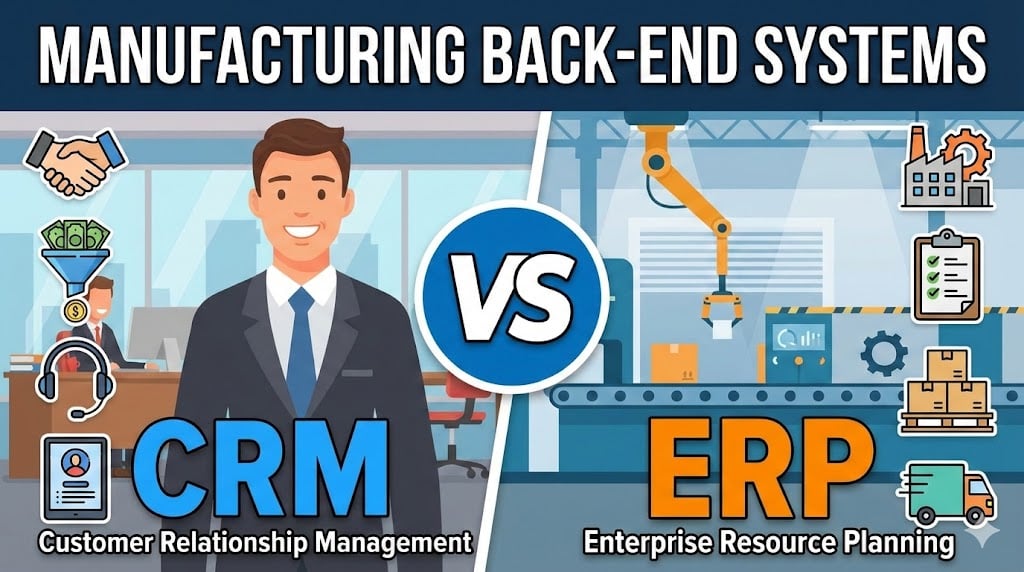
Content Marketing,Content Marketing,Content Marketing | 8 min read
Have you ever wondered how other businesses get onto page 1 when you search for something on Google? This topic first got my interest in the late 1990’s, when search engines were in their infancy. Back then, it was easy to cheat the system and trick search engines into promoting your web pages. These days, it takes a bit of work – but when it’s done right – your business will be promoted in Google searches for free.
In this article, we’ll be covering:
- Why do you need to be on page 1 of Google?
- What happens when you’re on page 1 of Google?
- How the Google search engine works – once you understand the basics, you’ll understand the strategies that will work for your business
- How Google learns about your website
- How to check whether you’re already on page 1 of Google – you might not even know it!
- How to get on page 1 of Google – the strategies that are used by countless small businesses around the world to get their web pages on page 1
Why do you need to be on page 1 of Google?
Getting to page 1 of Google helps your business in the following ways:
- You get free website traffic – most people will click the first 1-5 web page in their search results. When you’re on page 1 of Google, your web page is showing up for free
- It gives credibility to your business – people have a perception that if you’re showing up in the first few search results, then you must be one of the best in the industry in the topic that they searched for
- People will choose your business over your competition – if your competition shows up on the 10th page of Google search results then it’s highly likely that people will choose your business over theirs – simply because you’re easier to find on the Internet.
What to do when you’re on page 1 of Google
The first time I saw any of our web pages show up on page 1 of Google I got pretty excited. It was pretty soon after though that my next emotion kicked in – fear! Why?
When you’re on page 1 of Google, the search engine will scrutinise your web page. It does this to confirm that your web page is the best fit for the search that the person typed into Google.
If Google starts getting signals that people don’t like your web page, it’ll drop you back off page 1 again. It will look for signals like:
- Are people spending a lot of time on your web page?
- Are people looking around the rest of your website?
- Do people spend less time on other people’s web pages compared to yours?
- Are people sharing and liking your content on social media?
If the answer is yes to all of the above, you’ll probably stay on page 1 for a while. BUT – make sure you keep an eye on these pages – Google changes its ways a lot so you could suddenly drop off for no reason.
Our next section covers some of the strategies to keep your web page on page 1 of Google.
How does Google search work?
The Google search engine basically exists to help people search for information. As an example, I might type into Google “how to bake a cheesecake” (I love cheesecake!!). I expect, that after I type this question into Google that I’ll see a list of the web pages that will help me bake a cheesecake. I also expect that the first few pages in the list are the best web pages.
Google wants to be the best of the best at providing this service – i.e. if the quality of the search results started to drop, I’d probably look for information somewhere else – e.g. ask on Facebook.
Google takes a few criteria into account when it chooses the pages to show in the list. Here’s a shortlist:
- Do people spend a long time when they view your web page?
- Do people look at other pages once they’ve reached your web page?
- Is your web content fresh? – i.e. do you update existing content?
- Do people share your web page on social media?
- Do other reputable websites link to your web page?
- Has your website been around for a long time?
- Is your website in the same location, e.g. City, Country as the person who’s searching?
- Is your website mobile friendly?
- Is your website fast?
- Is your website secure?
When you type in your search query, Google weighs your web page against all the other web pages on the planet, based on the above criteria. It then makes a decision on whether your web page should be shown on page 1, page 2 or page 1,000.
How does Google learn about your website?
Google runs a process called “crawling”. This where it learns about new websites, changes in websites and follows links from other websites. When your website was first built, hopefully your web person set it up so that Google finds it easier to learn about your website.
Something else that should have been setup by your web person is setting up Google Analytics on your site. This is where Google gathers more information about how your site is performing.
Are you already on page 1?
You may not realise it but your website might already be there. For the full story, you might want to check out our blog post You’re already on page 1 of Google. If you want the basic facts, read on…
A couple of years ago we started getting enquiries about Insightly CRM consulting and training. Back then, we had a few lines on our website talking about our websites linking up with Insightly. That was it – literally a few words on our website.
What we didn’t realise though, was that Google linked us up with the topic of Insightly in its search engine. We typed in “insightly australia” into Google and we found out that we were in the first couple of search results, on page 1. We were pretty shocked but realised that there was only one other company in Australia who offered Insightly services. We’d accidentally found a niche.
Since then we’ve grown this side of our business and optimised our website. Most of the time, were in the first 2-3 search results when someone types in Insightly Training, Insightly Consulting or Insightly Australia into Google.
What does this mean for your business?
You might be excited to know that there’s probably highly specialised areas of your business that you can rank on page 1 of Google for. As an example, most accounting firms will setup their website to be on page 1 for “Accounting North Sydney”. There’s dozens of other business trying to do the same thing, so it’s highly competitive.
BUT – how many of those businesses are setting up their website for “Xero advice North Sydney”? At the time of writing this post – there were none. A smart business will look for gaps in the market and leverage that.
How do you get onto page 1 of Google?
I could write a whole thesis on this but here are the basic principles. And remember – Do what your competitors fear!
- Write LOADS of blog content
We’ve all heard the phrase “Content is king”. Why? Well, search engines like Google love promoting websites that have really useful information that people want to consume. The more content you have, and the better quality the content – will give you a better chance of Google promoting your content. Make a habit of writing a blog post at LEAST once per month.
If you struggle with this, there’s some really creative ways of producing blog content without needing to put in too much effort – e.g. having a copywriter interview you once per month for 15-20 minutes then go away, do your research and write your blog post for you. It can save hours of frustration and allow you to focus on what you’re best at doing. - Share your blog content on social media
Even the big players in the market do this. Just jump onto any social media platform and you’ll see countless articles that help people.
Most experts agree that it takes 12 touch points before someone decides to reach out to a business. Sharing your content on the right social media platform and getting it in front of the right people builds brand awareness AND builds up your business as an expert. Eventually, a good percentage will pick up the phone when they need your service AND choose your business to call. - Make sure your website is fast, secure and works well on mobile devices
According to Think With Google – “53% of [website] visits are likely to be abandoned if pages take longer than 3 seconds to load”. If you’re unsure of how fast your website is loading, take advantage of our complimentary website health check service. - Get people to link to your website
Work on a strategy to have other QUALITY websites link back to your website. Say you’ve written a blog post – The definitive guide to the perfect icing for a kid’s birthday cake. You shared on social media and people are raving about your blog post. It’s now time to reach out to party planners, part accessory shops OR your local newspaper to have them link from one of their blog posts back to your blog post. When Google sees this, it builds up a case that your website is the place to go to for information about making the perfect cake for a kid’s party. - Be patient
It takes 6-12 months for Google to gain trust that your website is the type of website that they want to promote in their search results. Google wants to reward sites that play the game – so the good news is if you’re putting in effort and your competitors have given up – Google will eventually put your website ahead of theirs. - Pick a niche
A common mistake that we come across is that businesses want to be all this to all people. Let’s look at the example of a personal trainer (PT). We’ve seen PT’s who’s marketing message goes something like “Are you looking to lose weight and get that summer body?”. Then the following week their marketing message is something like “If you’re a skinny guy who wants to look like Arnold Schwarzenegger…” This type of messaging confuses the market (AND Google) and creates a perfect opportunity for someone who specialises.
We’ve also worked with PT’s who offer this type of messaging “Are you a stay at home mum who’s struggling to keep fit and look after the kids? Our mum’s class is…”
Guess which PT struggling mums are going to choose and guess which business Google will promote when a mum is searching for a PT? - Setup your business for local search
Many businesses miss out on this simple opportunity. Run a search for your local area, e.g. Accountant Crows Nest, and see who pops up in the search results. If you’re seeing a whole bunch of results from True Local or Yellow Pages it could mean that nobody else has put the effort in to grab the number 1 spot. - Monitor your data weekly
Google search results can jump around A LOT. As an example, we used to focus on helping life coaching businesses with their Inbound Marketing. We’ve still got a few blog articles on this topic so we tend to show up in Google’s search results. The funny thing is that some weeks we’ll be on page 1, and some weeks we’ll be on page 9. It’s the weeks that we’re on page 9 that we need to make a decision on how to get back to page 1.
Tools like Google Analytics or SEMRush can help you gain insights on how your website is performing and how you’re ranking on Google.
If don’t have the time to learn about these tools, feel free to ask us about our monthly website reporting services. - Get a local professional
If you’ve been in business for a few years and are in a competitive industry then it’s time to bite the bullet and call in a professional to help. A professional SEO / Inbound Marketing business knows the ropes, understands the fastest and best strategy for your business and will have your back when it comes to getting your business found on Google by the people you love working with.
Published on April 07, 2019



